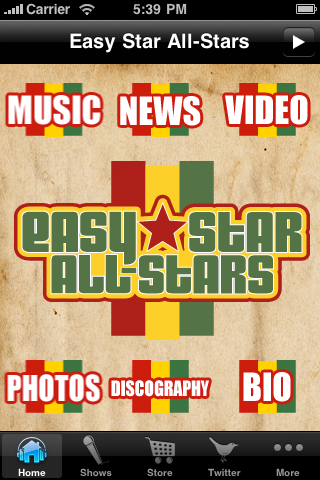
Image Attribute: Square
In the past few days there's been a lot of buzz about Square, the new mobile-phone credit card swiping solution. Point of Sale to the people, so-to-speak. Few peeps asked me of my thoughts, and how does it affect Adva Mobile, so here it is.
I think Square is a terrific little gadget that, more than it's own independent value to the world, the buzz it brings with it drives more awareness to the things one could do using their mobile phone. The more we can see from that, the better, IMO.
I admire their approach: I think that of the mobile payment solutions, they win on simplicity (to the end user) and reach. (almost) all other mobile payment solutions require pre-registration, which is a killer for the ad-hoc shoppers.
On it's own, I have my healthy skepticism how many people will end up owning and using the device. Requiring extra hardware? We've seen what happened to Zeemote. It will be interesting to find the payout rates, the installation process and other factors. Of those long-tail merchants, you need to find people with the right phone and plan, willing to pay for the gadget, and share their revenues with another party. For those people, Square complements the cash-only sales with cash and credit. I'm trying to think who those people are: Street artist selling paintings? Active musician next to the merch table? Do they really need this? time will tell.
Now if you contrast paying using Square and on a mobile website (with, say, PayPal), then I'd say it's hard to determine how many of the fans would rather use one or the other. Square wins in the consumer side, Paypal (I think) wins on the merchant side.
As far as Adva Mobile is concerned, again, the buzz that Square brings is a blessing. We'd like to see less and less "I didn't know I could do that". As mentioned, Square complements well the financial processing for products that entertainers would like to sell, say, on their merch table. It is important to note, Adva Mobile is a Mobile Marketing Service for entertainers. There are mobile sales tools that come with it, that entertainers can leverage, but our focus has always been helping entertainers acquire new fans and keep them engaged, coming to shows and participating in the "community" you're building.
Overall, Square is certainly an interesting solution that will stir things up for a while. It certainly brings a lot of buzz with it, which is great. I'm looking forward to see what will happen with it as time goes by.





 There's no doubt there are a lot of entrepreneurs with ideas that range from incredible to terrible, for the most part seeking seed funding with angel groups, who have to somehow accomodate them all.
There's no doubt there are a lot of entrepreneurs with ideas that range from incredible to terrible, for the most part seeking seed funding with angel groups, who have to somehow accomodate them all. ABI Research has a piece today about how
ABI Research has a piece today about how 

 I've just finished integrating with PayPal. Although one would think it's a given, their developer program is really great. Although I feared from this integration initially (we're talking REAL money here, not some software fluff), their developer program helped me get through it quickly, effectively, and I feel great about it.
I've just finished integrating with PayPal. Although one would think it's a given, their developer program is really great. Although I feared from this integration initially (we're talking REAL money here, not some software fluff), their developer program helped me get through it quickly, effectively, and I feel great about it.


 Linkedin/amirrozenberg
Linkedin/amirrozenberg Twitter/amir_rozenberg
Twitter/amir_rozenberg GMail/Amir Rozenberg
GMail/Amir Rozenberg Facebook/Amir Rozenberg
Facebook/Amir Rozenberg

